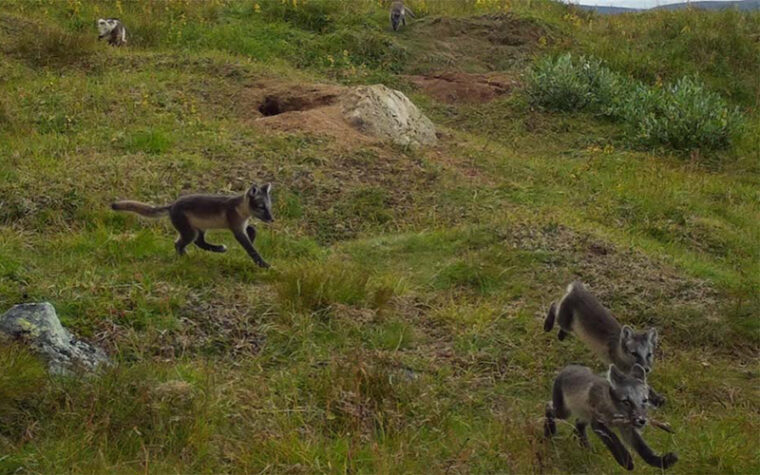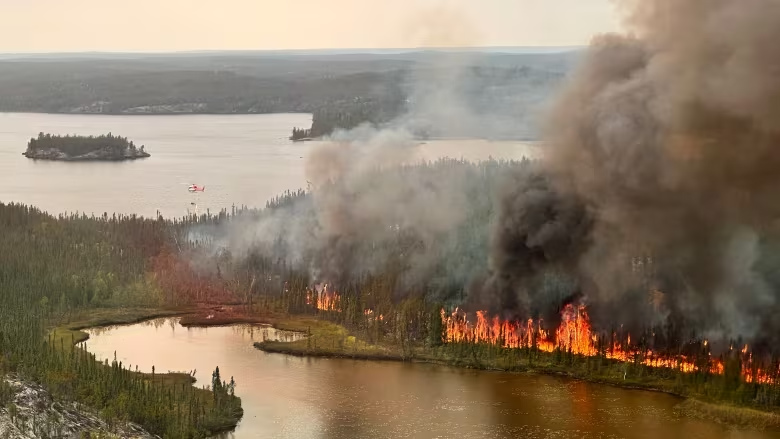For a little over a month, the scent of freshly-baked pastries and meals has been wafting through the corridors of the Nunavut Arctic College campus in Cambridge Bay.
The post-secondary school is offering a new culinary arts program to apprentice chefs.
Lead instructor Andy Poisson says the program was born out of a need to train more chefs to meet market demand.
With the passage of cruise ships during the summer and the Canadian High Arctic Research Station (CHARS), Poisson says visitors are becoming more and more frequent in Cambridge Bay.
“Sooner than later, someone is going to open up a fine dining restaurant. It’s just a matter of time. There’s a little bit more demand for the culinary,” said Poisson.
In the meantime, he says, staff shortages are being felt in many kitchens.
“When I was down in the mines, every time we looked for a cook here in Nunavut, we could never get one, so we always had to keep bringing cooks up from down south,” said Poisson.
Integrating Inuit culture into culinary arts

The goal is to give students who take the two-year culinary arts program the skills, knowledge and confidence required to proceed in the food industry. (Submitted by Tasha Tologanak)
The two-year culinary program is offered to around 10 full-time students. They learn the concepts of kitchen safety, how to master different cuts of meat and cook hot and cold meals, pastries and sauces.
Michelle Vandenbrink is part of the first cohort of the program. After serving as a manager in the Government of Nunavut for seven years, she felt it was time for a new challenge.
“I really enjoy it,” she said.
She hopes it will give her the tools to one day manage a team in the kitchen. The general structure is inspired by different culinary arts programs in southern communities but several elements of Inuit culture have been added, such as traditional food.
Tasha Tologanak, a junior instructor with the program, is also studying the possibility of collaborating with elders from Cambridge Bay and adding an Inuinnaqtun language course linked to traditional food.
“I’m really excited about incorporating our traditional knowledge and skills into the program,” she said. “I’m excited that we’re hoping to try to incorporate our language back into our kitchen. And then I’m excited that we get to bring local food into our kitchen as well, because that’s something we don’t do often.”
The opportunity to train locally

There is a high demand for chefs throughout Nunavut, but especially in mining camps or cruise ships. (Matisse Harvey/CBC)
Above all, Poisson says the training gives students the opportunity to stay in Nunavut and avoid the move south — and all the changes that brings.
“By having that program here, we’re able to take that fear out,” he said.
Graduates will complete their training with a Red Seal, a certification awarded to specialized trades, such as cooks.
Students who want to stick with one year of training will receive a certificate that will allow them to begin their career at the entry level, while those who complete their second year will receive a post-secondary diploma.
Additionally, Kiilinik Secondary School students are invited to join classes twice a week. The college hopes to awaken their culinary passions and encourage them to join the program later.
An improved program to train chefs

Lead instructor Andy Poisson, third from the left, stands with student Michele Vandenbrink, at centre, and junior instructor Tasha Tologanak in the culinary arts kitchen. (Submitted by Tasha Tologanak)
Poisson says Nunavut Arctic College chose to offer the program at the Cambridge Bay campus mainly because other culinary training courses have been offered there in the past.
The college already offered a six-week cooking camp there, then a culinary arts certificate until 2018.
“They weren’t leaving here as chefs, but they were leaving here as solid cooks,” said Poisson.
He believes the new version of the program is more comprehensive.
“We’re slowly raising that bar,” he said. “I would love to see this program take it to the next level where culinary becomes a staple up here in Nunavut, as well as learning to incorporate the foods from the land within the culinary style of cooking. That would be very unique.”
Translated from Matisse Harvey’s Radio-Canada story





Hello! This is my first visit to your blog! We are a group of volunteers and starting a new project in a community in the same niche. Your blog provided us useful information to work on. You have done a wonderful job!
Hey would you mind stating which blog platform you’re working with? The reason I ask is because your layout seems different then most blogs and I’m looking for something unique. P.S Sorry for getting off-topic but I had to ask!
Everyone loves it whenever people get together and share thoughts. Great website, continue the good work!
glad to be one of the visitors on this awing web site : D.
thanks to the author for taking his time on this one.
You have some really great posts and I feel I would be a good asset. If you ever want to take some of the load off, I’d absolutely love to write some content for your blog in exchange for a link back to mine. Please shoot me an email if interested. Cheers!